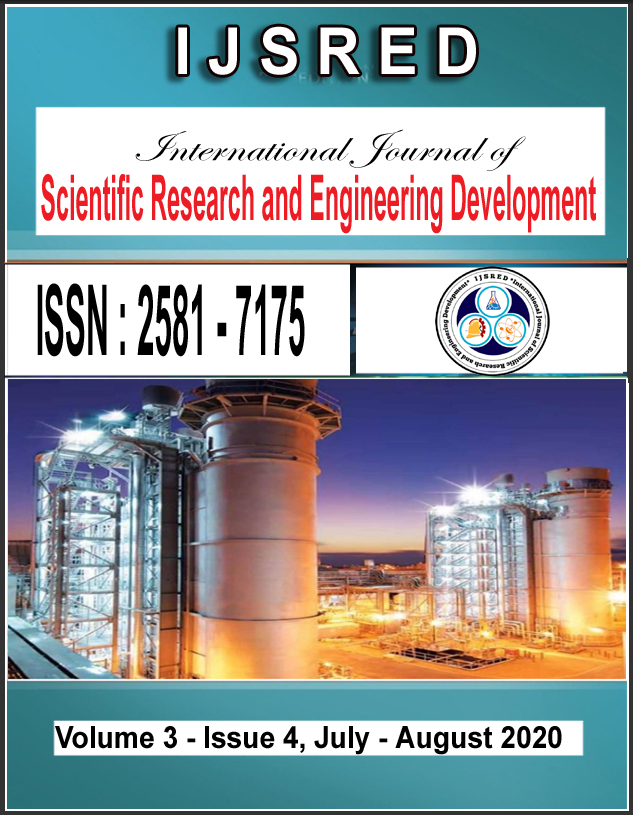 |
International Journal of Scientific Research and Engineering Development( International Peer Reviewed Open Access Journal ) ISSN [ Online ] : 2581 - 7175 |

Transformative Trade Integration; A Pathway To Attaining Sustanable Development Goals (SDG’s)
 |
International Journal of Scientific Research and Engineering Development (IJSRED) | |
| Published Issue : Volume-3 Issue-4 | ||
| Year of Publication : 2020 | ||
| Unique Identification Number : IJSRED-V3I4P38 | ||
| Authors : Uzoma Kelechi P, Nwachukwu Athanasius C |

MLA Style: Uzoma Kelechi P, Nwachukwu Athanasius C "Transformative Trade Integration; A Pathway To Attaining Sustanable Development Goals (SDG’s)" International Journal of Scientific Research and Engineering Development (IJSRED) Vol3-Issue4 | 271-281.
APA Style: Uzoma Kelechi P, Nwachukwu Athanasius C. Transformative Trade Integration; A Pathway To Attaining Sustanable Development Goals (SDG’s). International Journal of Scientific Research and Engineering Development (IJSRED) Vol3-Issue4 | 271-281.
Abstract :
As Governments move towards implementation, generating sufficient resources to reach these sustanable development goals (SDGs), transformative trade integration will serve as a catalyst in achieving the SDGs. Trade is not considered to be an end in itself under the SDG framework but rather a means of supporting implementation. In the absence of new international financial commitments, trade integration—and, more broadly, policies that affect trade flows—will have a significant role to play in the implementation process thus creating a pathway to attainment of SDG’s. Transformative Trade Integration has considerable more potential for driving and achieving a robust sustenable development goal in Africa. Transformative trade integration is allowing the free movement of goods, services, people and capital between national markets. In the aftermath of the global economic and financial crisis caused by COVID-19 many countries are re-assessing how transformative trade integration can contribute to boosting domestic demand, employment, economic stability, and development objectives. Many less developed countries in Africa face a wide range of significant development challenges which is considered a leakage to attainment of sustenable development. Linkages between trade integration and human development across four dimensions: income, access to services, empowerment and sustainability will be a transformative strategy to stimulate and achieving this developmental goal. For many years, the European Union has endeavoured to promote sustainable development with its trading partners, using the Generalised System of Preferences and bilateral or interregional free trade agreements, combining respect for internationally agreed labour market protection rules and respect for multilateral environmental agreements (MEAs). The persistent combination of respect for human rights and international core labour standards, and for specified MEAs through international trade agreements is unique in the world. Based on a review of recent evolutions in the global trade policy landscape, this article explores possible avenues for harnessing the potential of transformative trade integration policies to achieve these goals and targets. In doing so, it focuses on three areas where trade’s contribution will be particularly critical—namely, food security, sustainable energy, and strong institution.
